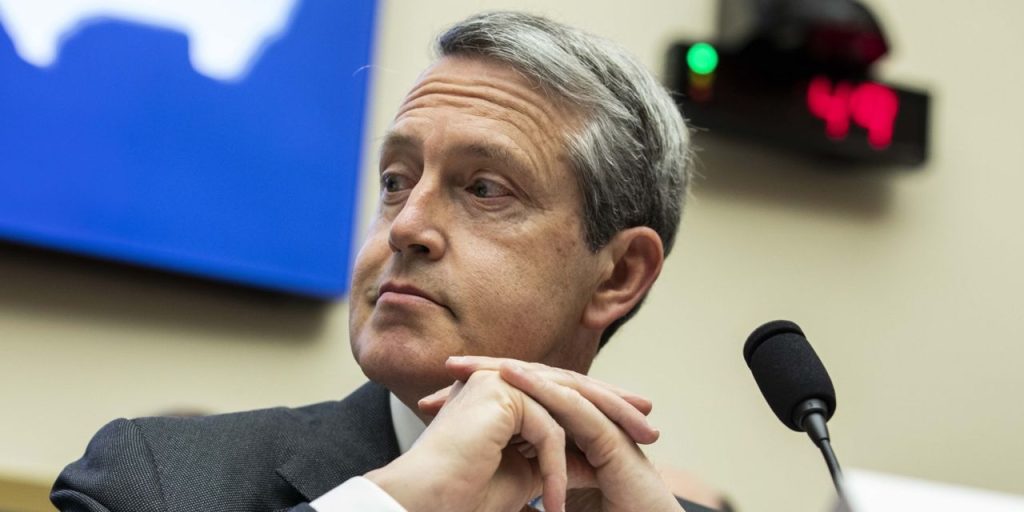Policymakers and investors should prepare for prolonged stress in the regional bank sector, according to Randal Quarles, former vice chairman for supervision at the Federal Reserve.
“This is not actually over,” Quarles said on Friday at a conference staged by the Hoover Institution. “Interest rates will stay higher than many are currently expecting them to stay for longer, and the consequences of that will be that this pressure will remain on this category of institutions for longer than we are currently expecting.”
Quarles spoke at a panel on the recent failures of Silicon Valley Bank and other regional banks. A report overseen by Quarles’ successor as the Fed’s chief bank regulator criticized the former vice-chair’s efforts to adjust regulatory standards for large regional banks like SVB.
See also: Fed in part blames Trump-era bank deregulation for Silicon Valley Bank failure
Though the report did not mention him by name, it indicated that Quarles instigated a shift in “supervisory practices” and that under his tenure bank supervisors were pressured to “reduce burdens” on banks the Fed regulated.
Quarles argued that the changes he instituted were not responsible for supervisors failing to force bank executives to account for the risks posed by rising interest rates. He said he encouraged bank supervisors not to be less assertive, but to be “more focused on the things that mattered, and more assertive on those things.”
He said that the central mistake that both SVB management and Fed supervisors made was to not understand that the bank’s base of uninsured deposits were not nearly as stable as historical evidence would have suggested.
“What happened at Silicon Valley Bank was a sea change and the question is: Was it because they were depositors of a particular type or were they depositors in a particular time?” Quarles said.
He noted that SVB depositors, concentrated in the start-up and venture capital ecosystem, participated in a bank run of unprecedented speed and scale that would have led to $142 billion in withdrawals in two days had regulators not stepped in.
These “interconnected communities” were “subject to fads, enthusiasm and herd behavior,” and had at their disposal both social media and banking applications that enabled the rapid spread of fear and easy withdraw of funds, he said.
“This requires rethinking how we handle liquidity at the Fed,” Quarles positied, and he recommended the central bank consider changes to its regulations that would encourage banks to take greater advantage of Fed provisioned liquidity during times of crisis.
Regional bank stocks remained under pressure Friday, led by declines in shares of PacWest Bancorp
PACW,
and Metropolitan Bank Holding Corp.
MCB,
The SPDR S&P Regional Bank ETF
KRE,
was on track to lose more than 6% on the week and is down more than nearly 15% in May, according to FactSet.
Read the full article here




